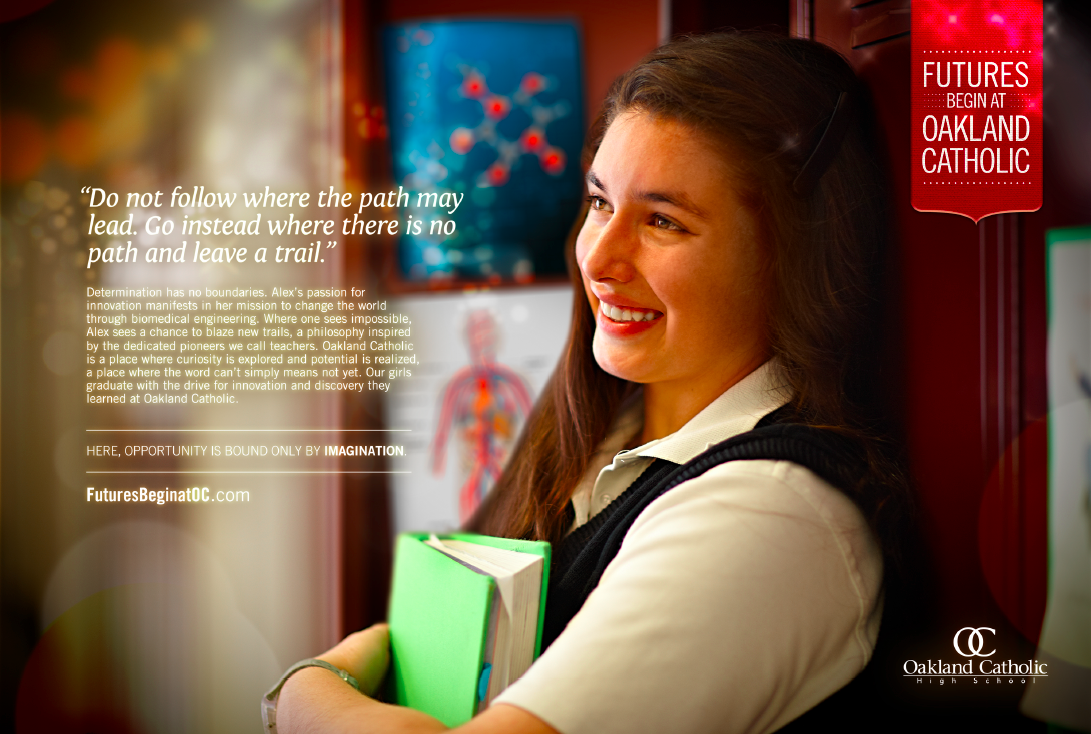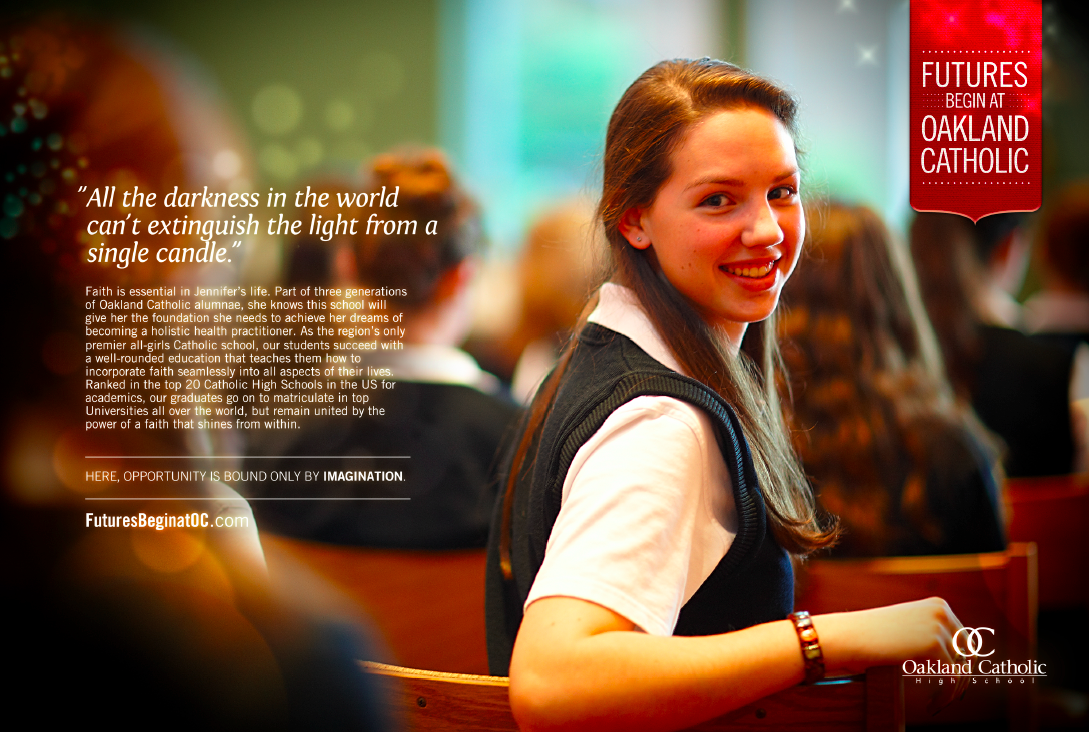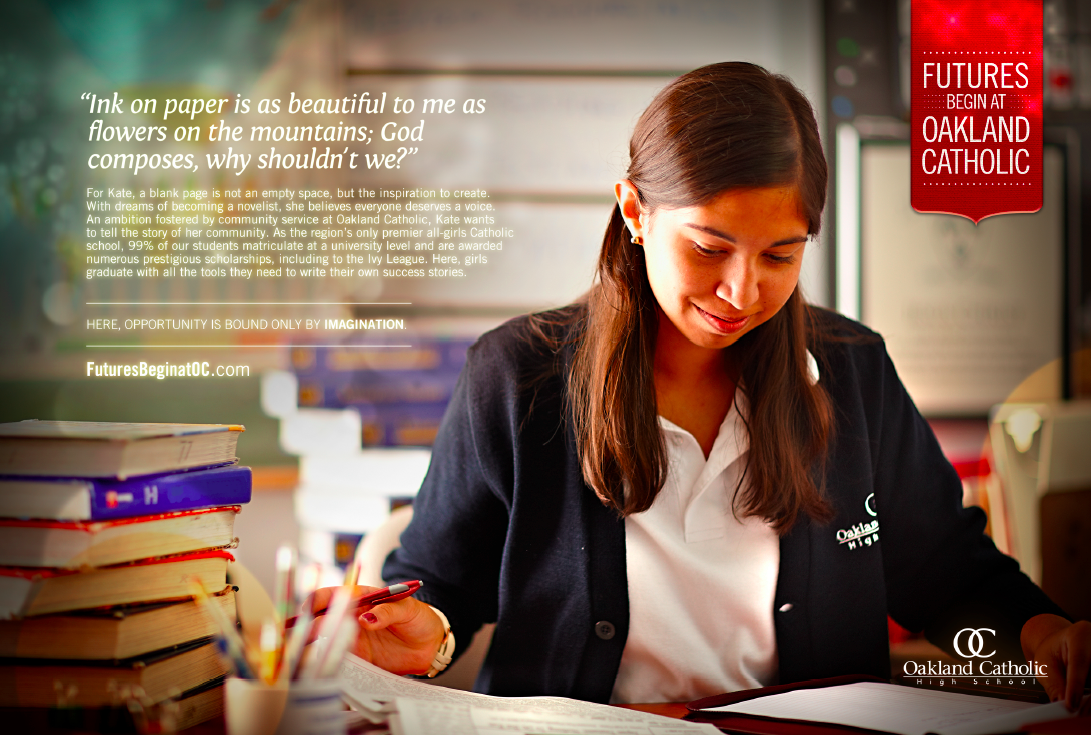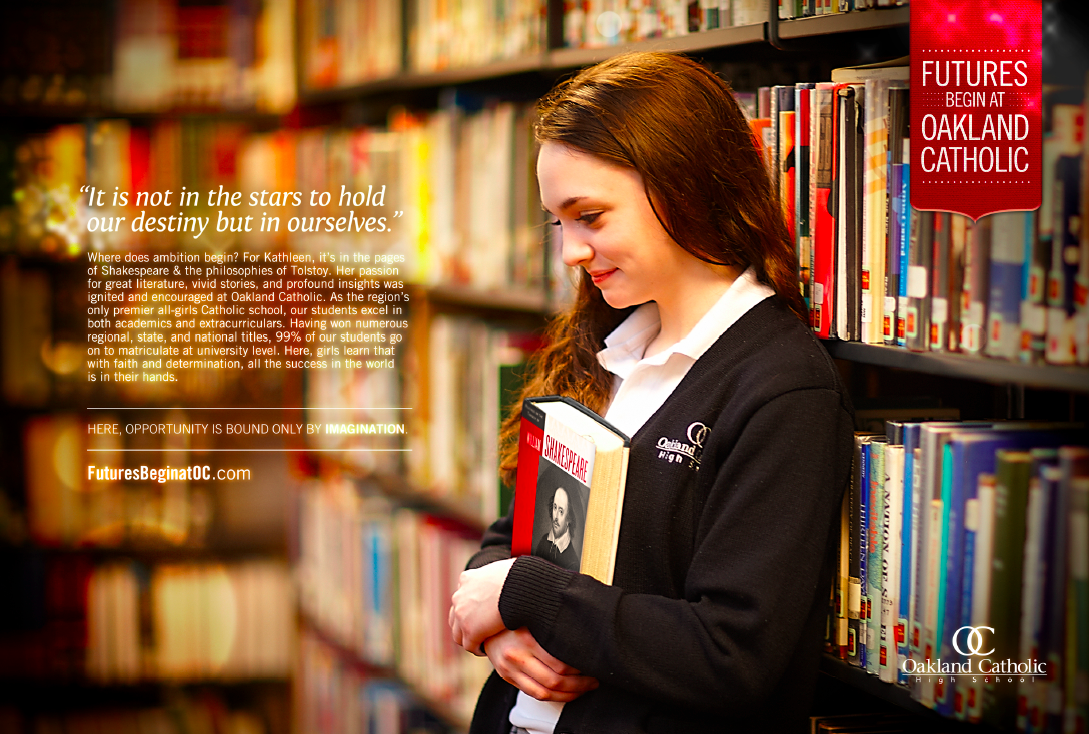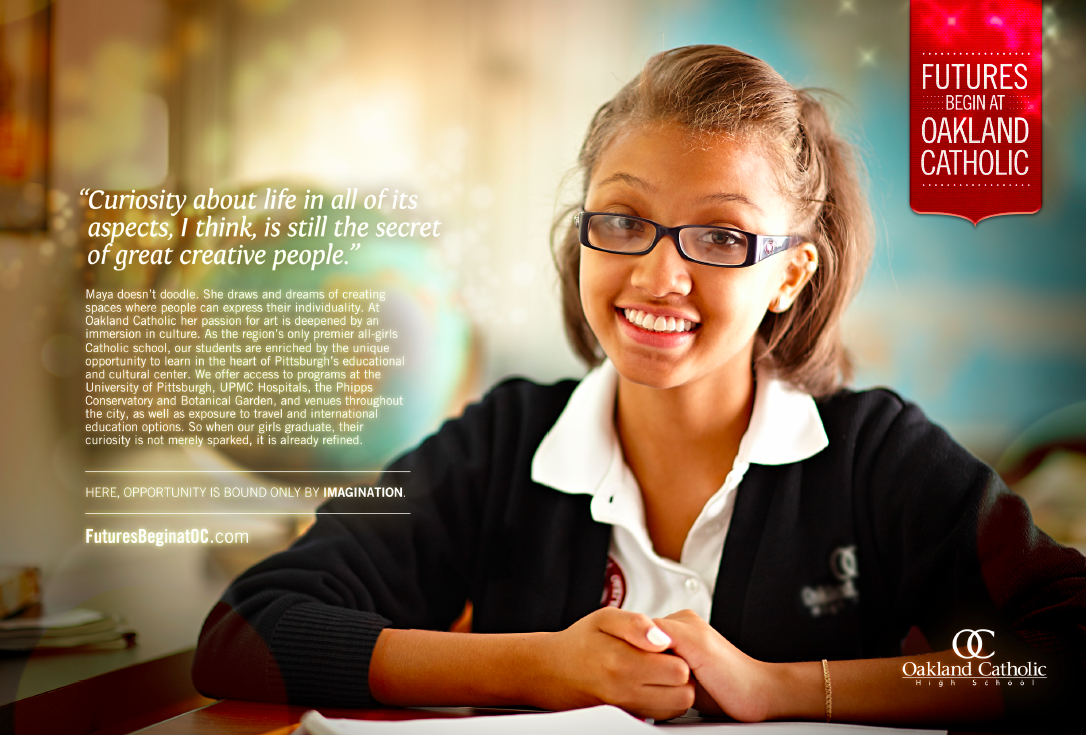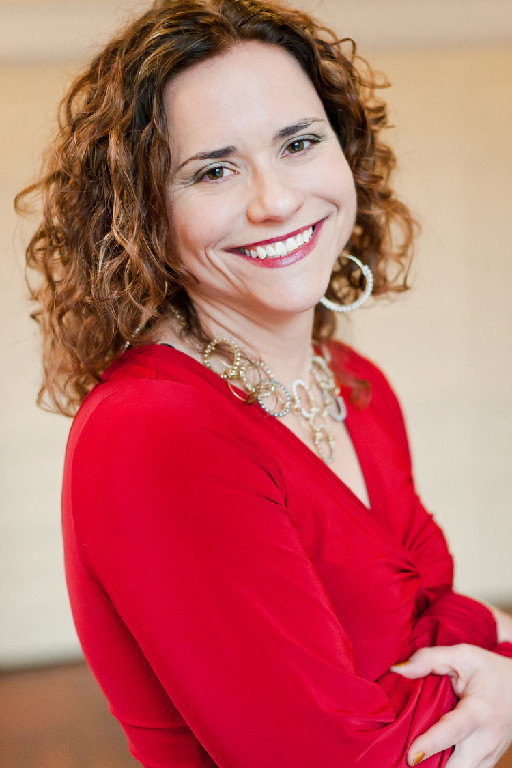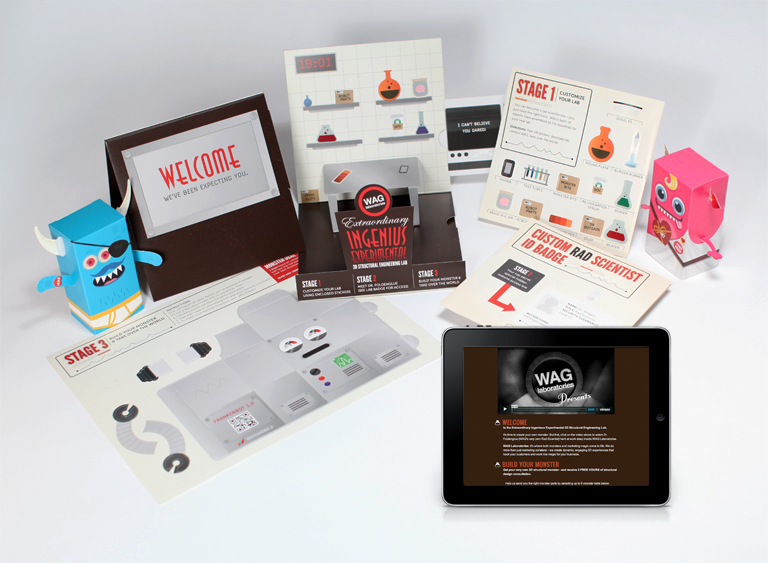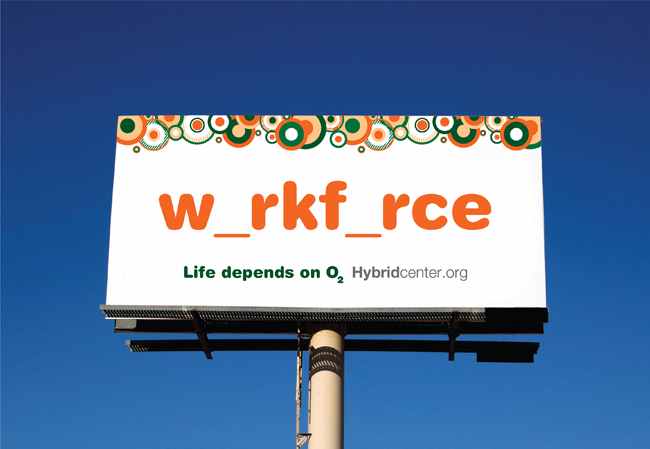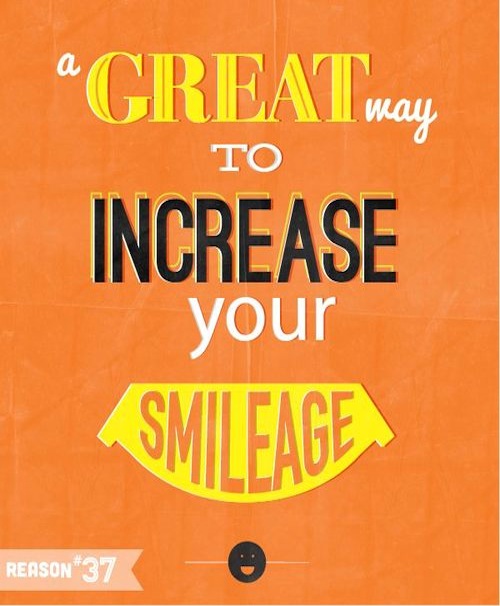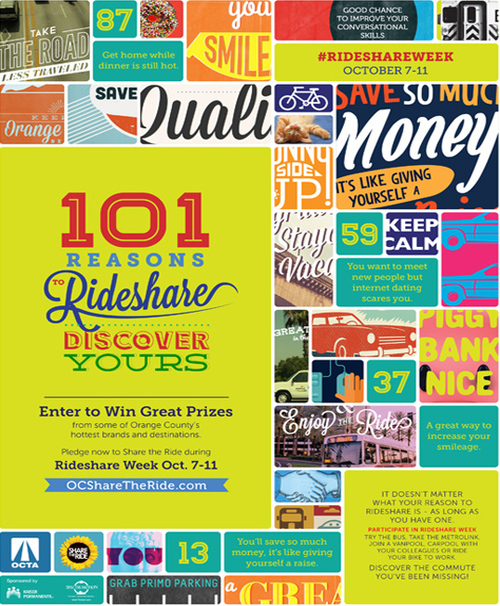Name: Andy Badalamenti
Age: 48
College & Majors/Minors: Joe Kubert School of Cartoon and Graphic Art (diploma in Cinematic Animation); College of St. Elizabeth (English degree, minor in writing)
Current Location: New Jersey
Current Form of Employment: I am a creative director for an advertising agency
Where do you work and what is your current position?
I began my career as a commercial artist—I did illustrations, mechanicals, layouts, posters, lettering and the like. I often worked with writers who had Journalism, Communications and English major backgrounds… they wrote the words, I created the pictures. (“Me not know, me simple artist” was my favorite saying back then.) My father was a former English teacher, and my sister currently teaches middle school English, so I was always exposed to great literature and art. Shakespeare and Whitman were regulars in our house. To this day, my father and I share poems and talk literature all the time.
The first company I worked for was a public utility. I was part of the Communications and Marketing Division. One dark year, we had a round of layoffs, and a number of the writers were let go—yet the amount of work was the same. (It’s been this way in America ever since.) Given my love-of-English DNA, I volunteered to help write a newsletter for our customers. That dopey little decision changed everything, as many dopey little decisions do.
When I wrote the newsletter, I had very little supervision, thanks to the fact that staff that was cut to the bone. I gleefully unleashed the anxious little creative dog in my brain longing to be free and let him run amok. I wrote a quirky, fun piece… which was a huge change for the stiff, stodgy, conservative, make-bankers-look-like-Dead-Heads company I worked for. Yet, after it was published, we got a great response—customers wrote and called in, saying it was the first time they ever read the newsletter, and some had received it every month for 20 years.
The vice president of our division was simultaneously thrilled, flabbergasted, horrified and defensive—and came up with an appropriate punishment for my success. I was given the project to write every month from then on. (“You like being creative, huh? Well, here you go…”)
Soon, I realized I was smitten with writing. But if I wanted to get anywhere with it, I knew I needed a degree, so I went back to school at night. It took seven grueling years, and I moaned and complained every minute of it, even though I found the subject fascinating. In the meantime, my wife and I started a family and I was working in excess of 45 hours a week. I worked very hard at school, focusing on writing, kissing up to professors and networking with fellow adult students. I ended up graduating top of my class.
I eventually left the watch-paint-dry world of electric utilities, and I began working for advertising agencies. In the beginning of my time with them, I was a 50-50 hybrid—art director and copywriter. I wrote the copy for projects, then I would mentally unplug from left-brain to right and create the artwork. I loved it, but agency life was a huge adjustment for me at first. It was, and is, creativity on demand—and what you produce must be really good. Clients are paying top dollar for it and love to fire agencies that ever fall short. No pressure.
I worked for several advertising agencies and began climbing the proverbial ladder to supervisory positions, which I still hate. I can supervise—I have the ability—but I don’t like it much. I’m truly a Mac monkey who loves to create. I’m having a blast right now banging out this little interview. Fortunately, in my current job, the agency relies on my creativity a lot, too… so I still get to play.
Because I had both an art and writing background, I was valuable to the smaller agencies that hired me—they couldn’t afford separate supervisors for each function. I found my niche: Getting paid to do two jobs for the price of one. Just kidding.
I also threw myself, completely and hopelessly, into self education. I have read hundreds of books and thousands of articles/blogs on writing and marketing and I have taken dozens of courses, seminars, and workshops over the years. I am currently very tired and nearsighted, but well informed. Advertising and marketing is all about being current, and you have to stay on top of your game, constantly. Clients look to you for that expertise, and you better provide it. Again, no pressure.
For the past few years, I’ve been educating myself on content and social media marketing, and I’ve been writing a marketing blog for a few years now.
In my current position, I am responsible for all the daily operations of my advertising agency (part of a larger marketing company). I oversee a staff of account executives, art directors and production personnel. I work directly with clients, help pitch new accounts, write copy (headlines, content, ad copy, marketing strategies, public relations writing, social media, etc.), and I help our clients shape their brands and messaging for their products and services. If you watch Mad Men, I would be Don Draper, just uglier and nowhere near as nicely dressed.
Working in advertising and marketing is a ton of responsibility and stress. I usually put in at least 50-70 hours a week, year round, which is typical in these industries. But it can be very exciting and interesting work, too. You just have to handle stress well!
Tell us about how you found your first job, and how you found your current job (if different).
In advertising, having a degree is important, but I’ve always found that it is much more important what you can do. In other words, what specific skills can you bring to an employer? That can include—depending on the advertising agency or department you work for—writing, editing, conceptualizing, partnering with art directors on projects and more. In marketing, an advanced degree is much more important—we’re talking MBA here.
A major part of the interview process in advertising is showing the work you’ve done—having a portfolio of work—and highlighting what skills you have. Talent matters, a lot. You also have to be comfortable presenting work to clients, defending ideas, and be at least decent with handling people, taking criticism, working with a smile under heavy pressure/deadlines/hours, and doing multiple projects at the same time with perceived grace.
What did you do in college to prepare for your post-grad life?
Since I went back to school at night, I was already working in my field by day. Still, I wanted more writing experience—things like radio commercials, brochures, websites and more. Freelancing was a big help with this. I started writing for friends and acquaintances’ businesses, often for free, just to get experience and build my portfolio. My only payment was samples of the finished pieces! Before long, I had a book full. Today, my samples are on my iPad.
As I alluded to before, stopping your education at your degree is a huge mistake. No matter what field you’re in (advertising, writing, teaching or whatever), keep your skills fresh. I really believe we’re living in a transitional period. I can’t think of a single industry today that is either A) About to go through a major change, B) Is in the midst of a change, or C) Has already changed dramatically. Keeping your skills and outlook current, I think, is key to survival—no matter what you do.
If you’re in college now, and you have an idea what field you’d like to end up in, use those pricey English skills and research the hell out of that industry. Find trade publications, websites, blogs and more and read, read, read. (Just what you want, more reading!) Know that industry and what’s happening in that world, and set your skills and sights accordingly.
What is your advice for students and graduates with an English degree?
I think my advice to anyone—not only English majors—is to be self aware. Know what your talents and abilities are. I was always good at coming up with ideas, and I found a way to use that skill, coupled with my degree, to make a career. It’s not like I had a big plan or anything. A lot of it was by accident or luck. But when I saw something I thought I could do, I went for it. And I always shaped my skills.
Your talent may be in teaching… writing resumes for people… blogging on a topic you love… writing articles for a local pub… composing killer lyrics… being a social media maven… assembling data for scientific studies or reports… interpreting classic literature with a fresh perspective… or editing other people’s work to bring the best out in them. Know yourself, know what interests you, and try to find a job that needs that ability. Always learn all you can and bring something of value to the table every day.


















